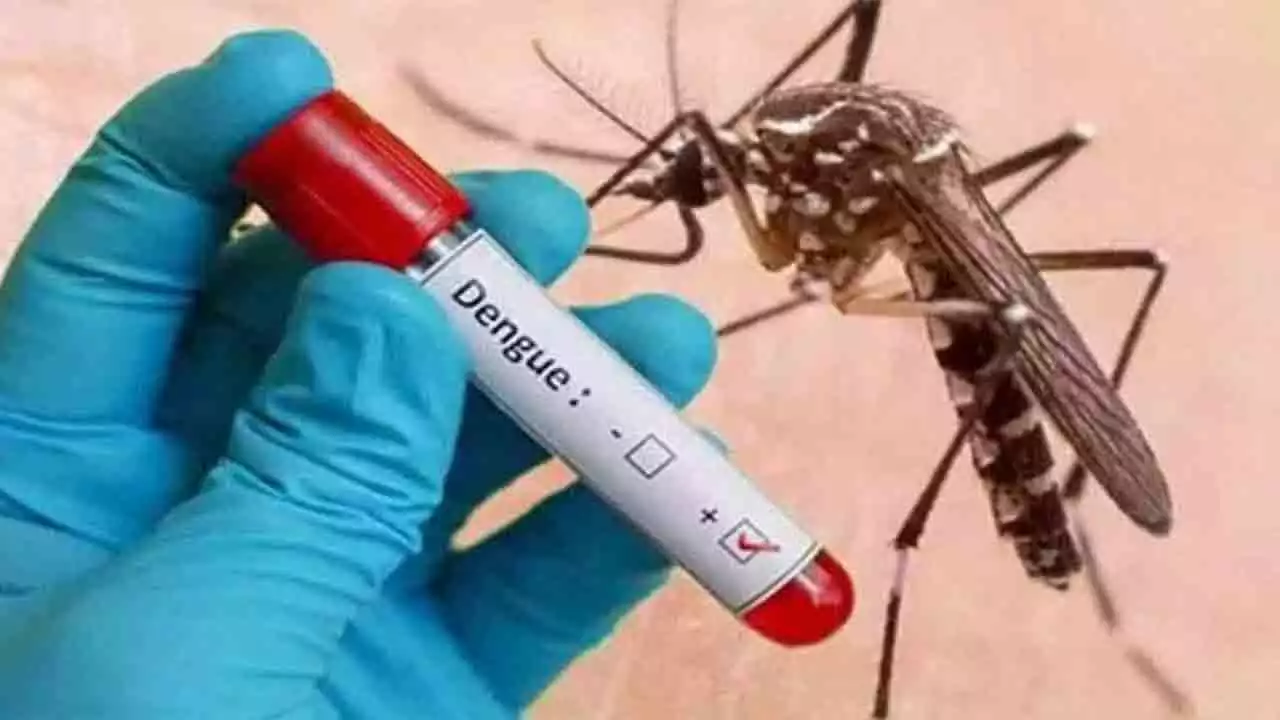In an alarming rise, dengue cases in Punjab have been steadily increasing, prompting the Department of Primary and Secondary Healthcare to release an updated report on the situation. According to the health department’s spokesperson, the province has seen 4,785 dengue cases this year alone, with 794 new cases reported over the past week. The situation has led to a series of preventive measures by health authorities to control the outbreak.
Rising Cases Across Punjab
The recent report shows a concerning spread across multiple districts. Rawalpindi remains the hardest hit, with 112 cases confirmed in the past 24 hours. Lahore and Sheikhupura each reported two new cases, while three cases each were identified in Attock and Pakpattan. Other districts, including Gujranwala, Chakwal, Mianwali, Chiniot, Hafizabad, and Leh, also reported isolated cases, highlighting the widespread nature of the outbreak.
The data indicates that dengue, a mosquito-borne viral infection, is affecting both urban and rural areas, underscoring the need for proactive and region-specific measures. Rawalpindi, due to its densely populated areas, has become a hotspot for the virus. The health department has been focusing on providing resources to the most affected areas, particularly in larger cities, where population density and environmental factors contribute to the spread of dengue-carrying mosquitoes.
Health Department’s Preventive Measures and Preparedness
To address the ongoing health crisis, the Department of Primary and Secondary Healthcare has ramped up efforts to prevent further transmission. According to the spokesperson, the department has ensured that all government hospitals are stocked with adequate supplies of medicines, including those used for dengue treatment. This preparedness reflects the government’s focus on managing the situation effectively and minimizing potential fatalities from the virus.
Efforts to combat dengue also involve extensive fogging and fumigation activities aimed at mosquito control, especially in high-risk areas. The health department is coordinating with local administrations to increase awareness among the public and to emphasize preventive measures like eliminating stagnant water, which serves as a breeding ground for mosquitoes. Additionally, dedicated dengue wards have been set up in hospitals, ensuring that patients have access to timely and focused care.
Challenges in Controlling Dengue
The widespread nature of dengue cases in Punjab presents unique challenges for healthcare officials. Mosquito-borne infections tend to escalate during the monsoon season, as the increase in rainfall creates more opportunities for water accumulation, ideal for mosquito breeding. Health officials have highlighted that while preventive measures are underway, public awareness and community participation are crucial to effectively combat dengue.
In areas like Rawalpindi, where cases are particularly high, the local government has been intensifying sanitation efforts. However, challenges persist, such as the need for comprehensive waste management and clearing of stagnant water pools. The health department has also called upon citizens to use mosquito repellents, wear full-sleeved clothing, and regularly inspect their homes and neighborhoods to eliminate standing water.
Year-to-Date Statistics and Future Outlook
Since the beginning of the year, Punjab has reported nearly 4,785 cases, a number that has raised concerns among health authorities. While some regions have seen sporadic outbreaks, others have faced a more consistent spread. The recent surge in cases is a stark reminder of the ongoing threat posed by dengue, particularly in regions where seasonal changes lead to increased mosquito activity.
Public health officials are also emphasizing the importance of early diagnosis and treatment. Dengue symptoms, including high fever, severe headache, pain behind the eyes, joint and muscle pain, and rash, can escalate quickly if not addressed promptly. The health department is urging people to seek medical attention if they experience any of these symptoms, as early intervention can significantly reduce complications associated with dengue fever.
Collaborative Efforts for Effective Dengue Management
The health department’s commitment to managing the dengue outbreak has been marked by collaborative efforts with other government bodies, including local municipalities and the public. Community involvement plays an essential role in preventing dengue, as reducing mosquito breeding sites requires collective action at the neighborhood level.
Educational campaigns are also being conducted to inform the public about dengue prevention, symptoms, and when to seek medical assistance. Radio, television, and social media platforms are being utilized to reach as many people as possible, reinforcing the message that dengue prevention is a shared responsibility.
The Road Ahead
As Punjab continues to tackle the dengue outbreak, health authorities are focusing on both immediate and long-term strategies. The short-term goals include containing the current surge of cases through medical preparedness and public awareness, while the long-term objective is to reduce the recurrence of outbreaks through sustained mosquito control and preventive practices.
With thousands of cases already reported this year, the challenge remains significant. However, with the Department of Primary and Secondary Healthcare’s proactive approach, combined with public cooperation, Punjab aims to mitigate the impact of dengue and safeguard public health in the face of this ongoing threat.



